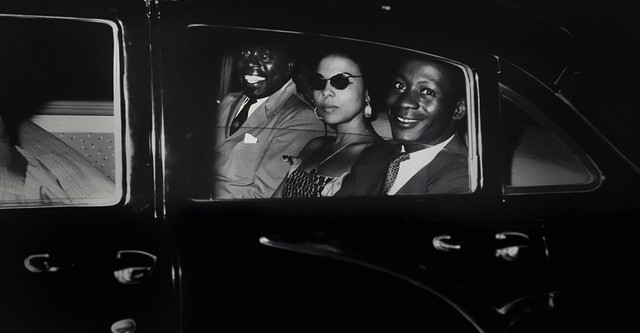Soundtrack to a Coup d'État - شاهدوا أونلاين: بالبث أو الشراء أو التأجير
نسعى باستمرار لإضافة مقدمي خدمة جدد، لكن لم نتمكن من العثور على عرض لمشاهدة "Soundtrack to a Coup d'État" أونلاين. نرجو منكم العودة قريباً للاطلاع على كل جديد لدينا.

Soundtrack to a Coup d'État غير متاح للبث.
دعنا نبلغك عندما يمكنك مشاهدته.
هل هناك مشكلة؟ يُرجى إبلاغنا.
نسعى باستمرار لإضافة مقدمي خدمة جدد، لكن لم نتمكن من العثور على عرض لمشاهدة "Soundtrack to a Coup d'État" أونلاين. نرجو منكم العودة قريباً للاطلاع على كل جديد لدينا.
Jazz and decolonization are intertwined in a powerful narrative that recounts one of the tensest episodes of the Cold War. In 1960, the UN became the stage for a political earthquake as the struggle for independence in the Congo put the world on high alert. The newly independent nation faced its first coup d'état, orchestrated by Western forces and Belgium, which were reluctant to relinquish control over their resource-rich former colony. The US tried to divert attention by sending jazz ambassador Louis Armstrong to the African continent. In 1961, Congolese leader Patrice Lumumba was brutally assassinated, silencing a key voice in the fight against colonialism; his death was facilitated by Belgian and CIA operatives. Musicians Abbey Lincoln and Max Roach took action, denouncing imperialism and structural racism. Soviet Premier Nikita Khrushchev intensified his criticism of the US, highlighting the racial barriers that characterized American society.